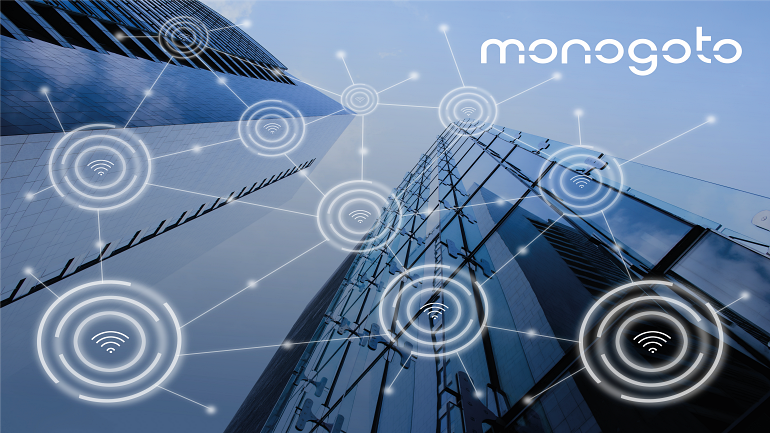Contributed by Maor Efrati, CTO at monogoto Working from home: A lot has been said about increased productivity and family time as positively impacted during the COVID-19 quarantine. I am discovering that it’s also good for writing and for analyzing the many conversations that I and my monogoto.io partner Itamar Kunik have regarding cellular, WiFi, and the future of connectivity. @monogoto we are building an OTT cellular network. We are providing a connectivity service to any company that desires to have cellular connectivity as part of the offering or product. Simplifying the backend and network with strong API’s while keeping all the bells and whistles that a cellular network can support over a traditional last mile (RJ45 and WiFi). It will be interesting to see what plays out regarding WiFi vs Cellular as the last-mile provider. Some think cellular technology is the perfect solution for all wireless networks, while others hope…
The Philippine telecommunications operator PLDT Inc. and Orange International Carriers, a division within Orange’s wholesale arm, have announced a partnership agreement for international voice aggregation services. According to the terms of the agreement, Orange will handle all international inbound traffic terminating on the networks of PLDT and its wireless subsidiary Smart Communications, Inc. Emmanuel Rochas, Chief Executive Officer of International Carriers at Orange, said, “Orange is proud that PLDT has selected Orange to provide support and protect market value for the future and we are delighted to enter into this partnership. I look forward to working alongside PLDT to embrace the market evolution and I am confident that this partnership will develop to our mutual benefit.” In a statement to the press, Orange said that its expertise will help PLDT manage the operator’s global partner portfolio, and its sales team will support PLDT during the implementation of various voice…
Liberty Global and Telefonica to merge their U.K. operations creating the leading fixed-mobile provider in the country Virgin Media, Liberty Global’s cable operator, and Telefonica’s mobile carrier O2 have announced an agreement to merge their UK operations in a 50-50 joint venture between the two companies. This mega-deal is valued at GBP 31.4 billion, with O2 worth GBP 12.7 billion and Virgin Media valued at GBP 18.7 billion. According to the announcement, this combination will create a stronger fixed and mobile competitor in the UK market, supporting the expansion of Virgin Media’s giga-ready network and O2’s 5G mobile deployment for the benefit of consumers, businesses and the public sector. The transaction is expected to close in mid-2021. Read more at https://tinyurl.com/yc42j66f Ericsson ‘talking to advisers’ about selling $1.2bn number portability unit Ericsson’s largest shareholder Cevian Capital has advised the communications equipment supplier to sell its 83.3% stake in the US number portability company Iconectiv, formerly known as Telcordia. For the past several years,…
US telecoms will not charge late fees during COVID-19 pandemic Major US telecommunications companies such as AT&T, Comcast, Cox, and Verizon have expanded their policies to not charge late payments and cancel service for customers and small businesses affected by the COVID-19 pandemic until June 30. Furthermore, Comcast said that apart from extending the commitment through June 30 and providing its Wi-Fi hotspots to everyone, it would also extend the pause in its data plans to give all customers unlimited data at no extra charge. With tens of millions of Americans working from home, internet providers and the FCC say the internet is performing well. Read more at https://tinyurl.com/yd8wbxuv Google is making Meet free for everyone The tech giant has announced that Google Meet, its premium video conferencing product, will be free for everyone and will be fully accessible over the coming weeks. Previously, the Meet service was available only…
Google rolls out BeyondCorp for secure remote network access without a VPN Google has launched BeyondCorp Remote Access, a new security service designed to provide remote access to internal systems without using a virtual private network (VPN). This new cloud-native security product is based on a “zero-trust approach” and is founded on a system that Google originally built for internal use almost a decade ago. Google said that when the number of remote connections suddenly increases, the VPN architecture may not be able to handle the load. BeyondCorp Remote Access includes a database of every device authorized to connect, a security certificate installed on that device, and integration with a human resources database containing information about usernames and group memberships. Read more at https://tinyurl.com/ya4hhtsk Zoom adds encryption as it passes 300 million daily users Zoom Video Communications has launched an update of its virtual meetings software, adding encryption and new…
BEREC says COVID-19 won’t break the internet The Body of European Regulators for Electronic Communications (BEREC) has announced that the increase in Internet usage across the continent is more or less stabilizing and that networks have been able to withstand the pressure. BEREC said that national regulatory authorities (NRAs) have reported “a stabilization in the overall traffic, but some NRAs still observe an increase of the overall traffic.” Some operators have expanded their network’s capacity to cope with the steady growth of traffic. According to the organization, “operators, which did not take any such measure, are still closely monitoring their network’s capacity to check if an upgrade is necessary.” Read more at https://tinyurl.com/rxmg53l Vodafone slashes costs of core network functions across Europe using VMware’s telco cloud The UK-based telecoms operator Vodafone has completed the deployment of a single digital network architecture across all of its 21 European business markets, using…
Comcast says voice and video calls have skyrocketed 212 percent during widespread self-isolation Comcast Corporation, a global media and technology company, has announced that voice and video calls have more than tripled on its network since people across the US started working from home due to the COVID-19 outbreak. According to the company, traffic in this category has increased by 212 percent in total, while overall peak traffic on its network has grown by 32 percent. Tony Werner, Comcast’s tech leader, said that the additional traffic is “well within the capabilities of the network,” and despite the increases in usage, the company’s network is working just fine. Read more at https://tinyurl.com/skncjow Zoom freezes feature development to fix security and privacy issues Over the past few weeks, the Zoom video conferencing app has been widely used for personal and business online meetings during the coronavirus lockdowns around the world. According to the…
Work from home: Can the telecoms industry take the strain? Many businesses opt for remote working due to the ongoing coronavirus crisis, and this has led to a dramatic increase in the use of online services. The additional pressure is proving problematic for the telecoms industry in Spain, which has reported a 40 percent increase in data consumption and a 50 percent increase in mobile phone usage. Movistar (Telefonica), Orange, Vodafone, Masmovil, and Euskaltel have issued a joint statement in anticipation of the national lockdown, urging customers to take “intelligent and responsible use of the network and the resources it provides us.” Meanwhile, BT, the UK’s largest telecom provider, said that its network can handle it. Read more at https://tinyurl.com/sm8bms7 Vodafone unveils five-point plan to combat COVID-19 Vodafone has put forward a five-point plan to maintain network services and assist governments across Europe in controlling the outbreak of coronavirus. The five…
The US technology company Ribbon Communications has introduced its new EdgeMarc 300 Series to provide small businesses, home office and branch office customers that currently have analog voice infrastructure, with an easy and cost-effective way to capitalize on IP-based voice services. The cloud solutions provider said that the EdgeMarc 300 is part of the recently launched cloud-based Ribbon Next Generation Intelligent Edge portfolio, which securely connects and enhances enterprise voice and data applications, including Microsoft Teams. This portfolio of edge solutions delivers service assurance, advanced analytics, security, policy and routing functionalities for cloud communications applications. Ribbon’s EdgeMarc 300 is a survivable branch office solution that supports the integration of analog endpoints and the public switched telephone network (PSTN), as well as Session Initiation Protocol (SIP) calls. This gateway provides connectivity between analog and SIP devices, enabling branch offices to rapidly migrate analog phones to a SIP-based network and communicate seamlessly with…
The next-generation wireless technology for digital cellular networks is steadily gaining traction, with significant implementations under way. All of the major carriers are rolling out their 5G networks, targeting large cities that crave super speeds, virtually lag-free connections, extended coverage and other great benefits that are made available by this advanced technology. 5G has already been launched in many different locations around the world, but it is still considered to be in its initial stages. All of the US carriers have now launched some form of 5G cellular network. But what exactly is 5G, how fast is it compared with 4G, what will it bring to VoIP applications, and what are the benefits and drawbacks of this innovative technology? Let’s take a look at 5G in more detail. What is 5G? 5G stands for fifth-generation cellular wireless and is the next generation of telecom networks that entered the…













